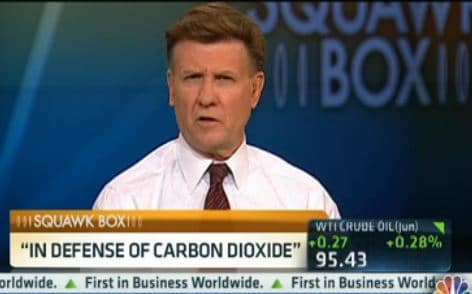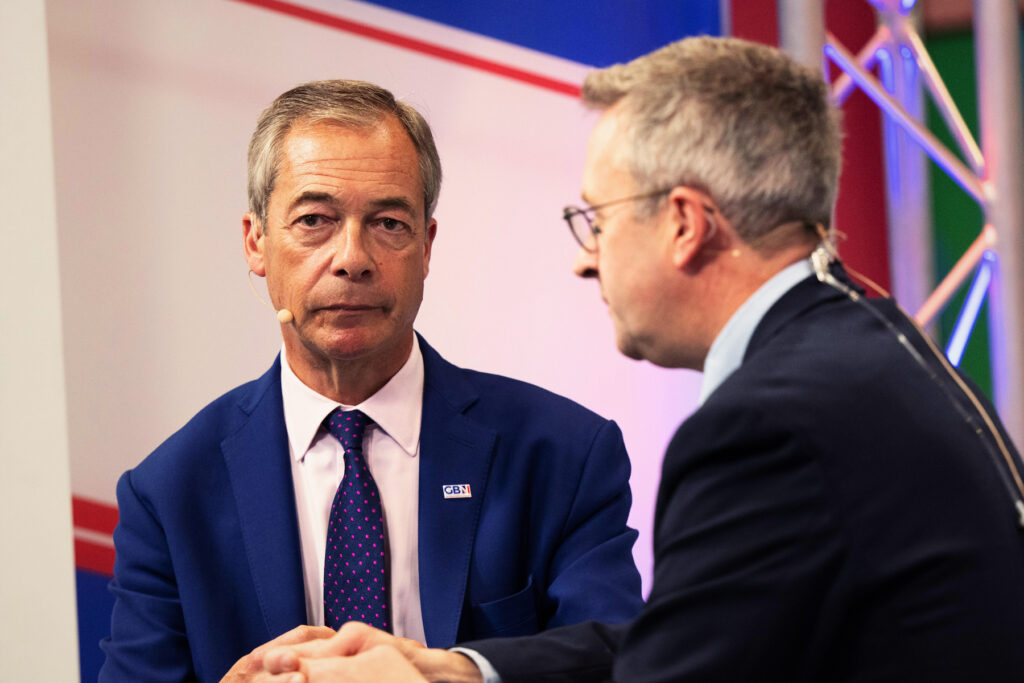This is a guest post by Emily Southard, Campaign Manager of Forecast the Facts
Joe Kernen, co-host of CNBC’s Squawk Box, lashed out on Twitter this month at concerned CNBC viewers and individuals who called on him to accurately report the facts about the economic risks of climate change. Kernen’s comments are indicative of a larger climate coverage problem at CNBC.
Just recently, the network refused to air President Obama’s climate change speech–a surprising choice for a business news and financial network, given that Obama’s remarks dramatically shifted financial markets.
One potential explanation for this blunder? Many of CNBC’s on-air personalities are avid climate deniers–currently, the most vocal being Joe Kernen.
The CNBC Squawk Box co-anchor is so adamant that climate change is a “myth”, that Kernen has dedicated 150 out of his 530 lifetime tweets (over 28% of his all-time Twitter activity) and many business hours to doubling down on climate denial.
Kernen’s tweets have varied from calling concerned climate activists the “eco-taliban” and “sheep” to repeating well-debunked climate denier myths, citing his MIT cancer research multiple times, and complaining about public criticisms.
@tally44 @Veggiebabe1 is Eco Taliban more descriptive? What do you think. Both pretty accurate for your types. All dogma- no science.
— Joe Kernen (@JoeSquawk) July 10, 2013
@MFerrara37 gee matt it might help if the planet hadn’t stopped warming 7 years before the al gore movie came out. Ironic isn’t it?
— Joe Kernen (@JoeSquawk) July 5, 2013
On July 8, Kernen even vented his frustrations on-air in an exchange with Shell Oil’s former USA CEO, John Hofmeister:
“You haven’t read my Twitter feed, I’ll tell you that much […] there’s a lot of things happening the enviro-socialists are–man, it is a cult. It is a bona fide cult.”
These climate denial rants augment a Media Matters report that found “more than half of CNBC’s climate change coverage was misleading”.
With climate change costing global GDP $1.2 trillion annually, Kernen’s remarks represent a conflict for CNBC between accurate business forecasting and personal ideology.
Subsequently, Forecast the Facts and Environmental Action launched a petition targeting CNBC’s CEO and President Mark Hoffman demanding that he “tell Joe Kernen and [CNBC’s] other on-air personalities and guests to stop denying climate science and start reporting the facts on the economic risks of fossil-fueled climate change.”
The petition has already gathered over 25,000 signatures since its launch, and helped spur on Kernen’s tweets.
Having one of their prominent TV hosts spending hours fighting against scientific consensus and the business community at large may just be another story in a long line of bad news for CNBC.
Just recently, the network has seen their viewer ratings falling to their lowest levels since 1994 in key demographics. And just last week, Squawk Box hosts had an embarrassing run-in with Sen. Elizabeth Warren, who schooled them on the history of Glass-Stegall.
As Talking Points Memo said best in one of its headlines: “Ouch, Better CNBC Anchors Might Be Required”.
Subscribe to our newsletter
Stay up to date with DeSmog news and alerts







